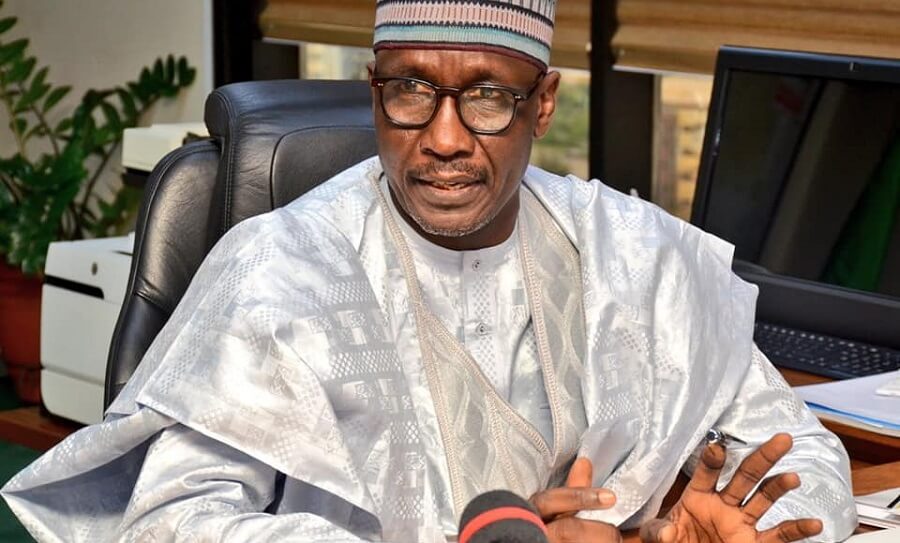Nigeria Will Be Self Sufficient In Gas For Domestic Consumption, To Export In Two Years– GMD
… To Convert Tricycle Engines From Fuel To Gas Use
The Group Managing Director of the Nigerian National Petroleum Corporation, Mele Kyari, has revealed that Nigeria will become self sufficient in gas for both domestic and export purposes in the next two years.
Advertisement
Kyari also said that there are plans to commence the conversion of tricycles popularly called ‘Keke NAPEP’ to run on gas and in the future become electric driven.
The GMD said this during a virtual presentation at the Association Of Energy Correspondents of Nigeria (NAEC) 2021 Strategic International Annual Conference held in Lagos.
The event which held on Tuesday had the theme, ‘PIA: Energy Transition And The Future of Nigeria’s Oil and Gas.’
The disclosure made by the NNPC boss follows the global push for renewables and the recent call by world leaders at the ongoing United Nations Climate Change Conference (COP 26) in Glasgow, United Kingdom.
Advertisement
President Muhammed Buhari recently signed the Petroleum Industry Act which has provided a guideline for the country’s energy transition away from fossil fuel as moved by many African nations.
Before the passage of the PIA which overhauls the country’s rich oil and gas industry, Buhari had in March declared 2021 to 2030 the ‘decade of gas.’ The energy source is seen as cleaner than fossil fuel.
Crude oil is currently Nigeria’s major energy source, but the GMD in his speech explained that there is progress with the implementation of the PIA towards making the transition fuel which is gas easy to access.
Kyari said, “We are making good progress around the implementation of PIA, which is clearly upward towards making the transition fuel which is gas easy to access, easy to deliver to the market and also get all the resources that we require to make sure this works for our country.
“And to do this alone, there’s really no way you can do this without having some backbone infrastructure. That means in terms of transmission, transmission of gas from its production location to to where it can be use.
Advertisement
“That’s why we’re very focused on delivering on our major gas infrastructure projects at the OB3 completion, gas expansion, the AKK pipeline.
“By the time we are done with this, which is well within sight and in the plan maximum of 24 months. We’ll see this will happen. Then once that happens, we will see over eight billion scope of gas in our network and that means that in the next two to three years, we will have sufficient gas for us to to utilize while we take every step for us to expand current facilities.”
The GMD said judging from recent history and in the corporation’s recent business practices, the NNPC is bent on taking gas into both gas based industries and those industries that do not necessarily process gas as a product.
Be added, “This will work and this will clearly bring prosperity to our country, to bring economic growth to our country in a manner that we don’t expect and in a manner that prefer particularly middle class to be able to transit into the much climate friendly vehicles that we need.
“It [gas] probably has much cheaper impact on the environment than the thought of the fossil fuel.
“But clearly, you know, this is the best way to go. And gas cars are getting cheaper, yes, but still not half as cheap as typical of fossil fuel driven vehicles. So this is the reality we are dealing with.
Advertisement
“And as we all know, the Keke NAPEP [tricycle] population is growing, they are all driven by fossil fuel, and the best we probably can do is to make convert them into gas driven.
“This is the activity that we are taking next and even if you do this, you know, the level of poverty that we have in our country is in such a way that it is very difficult to dismiss Keke NAPEP in the short time to come.”
The GMD of the NNPC said the country is currently exploiting the available resources it has bearing in mind what becomes of the sector by 2050.
He maintained that countries like Nigeria that contribute less of the world carbon emission deserves support to ease the transition process.
He said, “It is long term at least 30 years away from us today, but 30 years in history is really nothing. And for development science, we know for sure that 30 years really doesn’t mean much.
” And that’s why we are aligning with the realities around us in the short term, there could be challenges. Obviously, the banking sector and the financial institutions are becoming very, very reluctant to finance fossil fuel investments.
“This is very real and it’s happening. It’s unfolding. But we also know that the world needs to help us and to support us to make sure that we can transit with the wall and obviously achieve the objective of the net zero by 2050. Some countries have actually declared 2070, but the middle emitters of carbon have actually declared 2070.”



